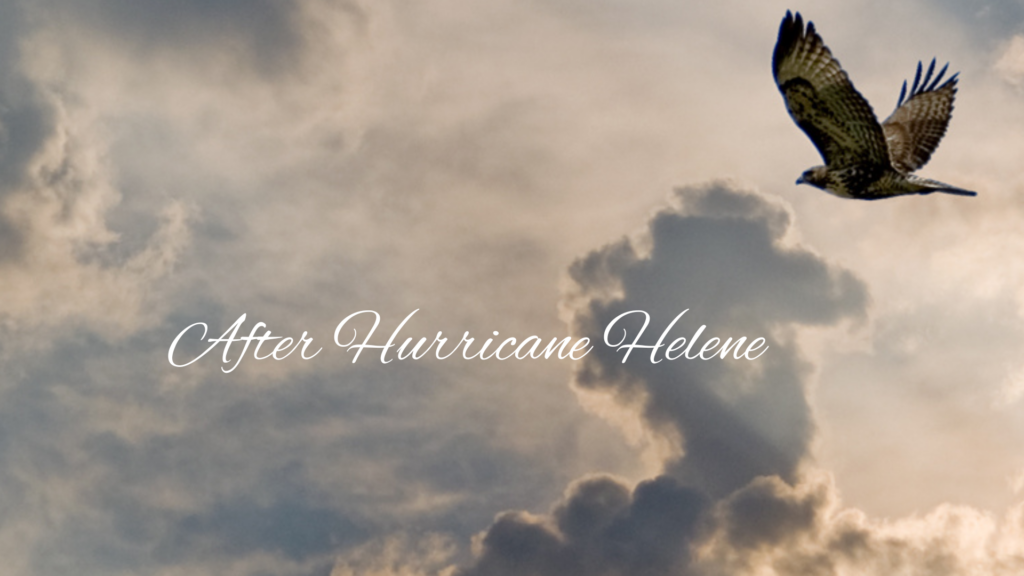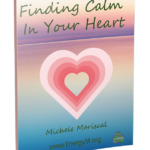
“When you come out of the storm, you won’t be the same person who walked in.” – Haruki Murakami,
I’m still in a haze from Hurricane Helene. I live on the gulf coast of Florida and while I sustained minimal damage comparatively speaking, I’m so fatigued. We sustained the worst flood waters in 100 years in our little town.
Our area had power outages for several days which I was prepared for but I’m adding a battery-operated fan to my list of supplies for emergency preparedness! For days I was tending to my most basic needs and helping others where I could.
What I’m experiencing now is the sadness for my community and little tourist town. Many have lost so much with flooded homes and cars. Witnessing others loss is adding to my sense of loss.
When I teach and educate about grief, I talk about over 40 different kinds of loss that can cause grief. What people are experiencing now may be both tangible and intangible (loss of property, loss of safety, loss of life).
Now that I have power again and am getting things prepared for talks that I’m doing next week, I’m feeling forward movement, but I’m also feeling a lot of fatigue and emotions. Tears well up now and again. I know well enough to let them flow and I feel better after expressing them.
Grief is normal and natural. Grief is also the conflicting feelings caused by the end of or change in a familiar pattern of behavior or routine.
If you are supporting those who have suffered loss in Hurricane Helene help them tend to the basic needs of the day as restoration moves forward if needed. And then allow them to express emotion and don’t “bright side” them.
What I mean by that is that seeing the positive in situations can be a useful resilience skill but to the exclusion of other emotions of loss that may need to be expressed, it’s a detriment, and why so many have so much unresolved grief in our culture!
The fatigue that I am experiencing and that many experience as a result of grief comes with the overwhelm of emotion. The mind is also overtaxed with what to do and the body is taking the hit from the excess adrenaline that comes in times of crisis.
“When you come out of the storm, you won’t be the same person who walked in.” I’m altered in this experience and I’m registering all that I am feeling – happy that I’m safe, that my belongings are safe, that I can help in my community, that I’m intensely sad when I go on my morning walks and see all of the belongings of home after home out on the street.
Through adversity we grow and through the expression of our grief we are fully human.
If you would like to help in some way the World Central Kitchen is serving in hardest hit areas, and you can donate here: https://wck.org/

